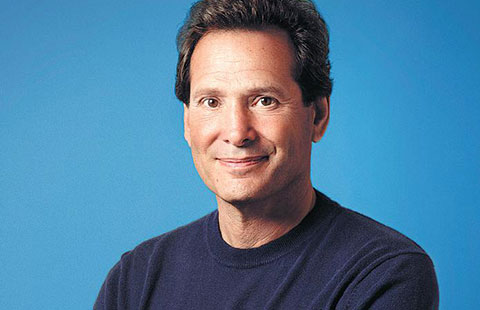US-China economic relationship most consequential, cooperation benefiting all: RAND economist
WASHINGTON -- The United States and China have the world's most consequential economic relationship and it really pays for them to cooperate a great deal, an economist with the US-based think tank RAND Corporation has said.
Howard J. Shatz, a RAND senior economist, made the remarks in an exclusive interview with Xinhua, ahead of US President Donald Trump's upcoming state visit to China, with trade expected to be one of the major topics in talks with Chinese President Xi Jinping.
Consequential economic relationship
There's been "a lot of continuity" in terms of US economic relations with China since Trump took office early this year, said Shatz, who held a PhD in public policy from Harvard University.
The Trump administration, he stressed, has been focusing on issues of market access for US companies, greater abilities for US companies to export and for investors to make investment, and a generally more level-playing field for market players, in seeking a deeper economic relationship with China.
The differences of Trump's economic policies with China from previous administrations are a greater focus on bilateral trade deficit, intellectual property rights and technology, and steel, Shatz observed. "Those are all now being worked through."
From his point of view, the world's top two economies might disagree about certain trade practices, but "that's to be negotiated and it's a very important point in negotiation."
As long as the United States and China, whose economic relationship remains the most consequential in the world, "do not get into a trade war or some pattern of mutual recrimination," both sides and the rest of the world will benefit, Shatz said.
"So it really pays for them to cooperate a great deal," he pointed out. "That doesn't mean they have to agree on everything. It means they have to figure out how to resolve their differences in a way that can keep their economy stable and growing."
Bilateral trade deficit matters?
The international economic expert who has spent over a decade studying trade deficit -- a major concern of the Trump administration, suggested a looking at "the overall deficit rather than specific bilateral deficit."
As to the cause of the overall US trade deficit, "that's fundamentally an issue of savings relative to investment," Shatz stressed. "The overall deficit is the bigger point of concern."
Traveling with Trump to Beijing is a 29-company business delegation, of which 10 are involved in liquefied natural gas (LNG) or other energy fields, raising prospects for potentials deals on LNG between the two economic heavyweights.
"LNG is an extremely good opportunity for US exporters," Shatz said.
China will need more energy to power its growing economy as US supplies of LNG has kept rising thanks to the technology of hydraulic fracturing, adding to the global LNG market, Shatz analyzed. "LNG will also lead to much lower pollution than coal."
He admitted that the shipping cost is one of the obstacles for US natural gas to be exported to China but suggesting leaving it to private ocean carriers to work that out.
Cooperation at various levels ramps up
One of the most comprehensive, influential US strategic think tank, the RAND Corporation has maintained an active cooperative relationship with governments of different levels in China as its researchers have conducted a series of China-related research projects on economic and trade, environment, health, labor force, population, etc.
US states and cities see China as a major economy growing rapidly and creating opportunities, said Shatz, co-leader of consulting service years ago for Sino-Singapore Guangzhou Knowledge City, a smart eco-technology based in Southeast China's Guangdong province.
"Right now I think there's more looking at China as a source of investment," as China has striven to spur outward foreign direct investment, the economist said.
Speaking of Trump's China visit, Shatz labeled it as "significant."
He recalled that Trump and Xi had built a warm relationship during their first meeting at Mar-a-Lago in the US state of Florida in April.
Back then, the two leaders agreed to advance their countries' economic cooperation with a 100-day action plan under the framework of the US-China comprehensive economic dialogue.
"There has been progress in those dimensions," said Shatz, adding that Trump will be "following up" on those warm relations and early results during his three-day trip to China.


















